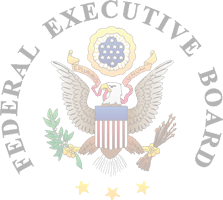Disaster Preparedness Information
Developing a plan | Emergency Checklist | When Disaster Strikes
Notice to APCSS Employees:
In the event of a disaster or emergency, the Honolulu-Pacific Federal Executive Board is the critical point of coordination and communication in all hazards and maintain notification systems 24/7 to keep Federal agencies informed during emergencies. Click here for their Alerts Page.
It’s Hurricane Season again!
It’s hurricane season again and a good time to review the “basics”-the basics of preparedness-a family affair by ensuring each member knows the family emergency plan
Because it encompasses other aspects of what being prepared means, making a plan is the first and perhaps most important part of a family’s emergency preparedness. As a family, determine what disasters may occur in your community and how you may be impacted. Use that information to plan how you would contact each other if at home, work or school. Gather supplies necessary for sustenance and comfort; this will help you both follow the plan and stay safe during and after a disaster or other emergency. Identify two places-right outside the home and outside the neighborhood – in case you cannot return home to meet after a disaster. After determining places to meet, an off island relative or friend should be identified to be the family contact. The role of the family contact is to collect and communicate individual locations and status and then when conditions allow, help everyone connect. Consequently, everyone, including children, should know the family contact and keep contact information handy.
Disaster Preparedness Information Lists
Hurricane Information
- Hurricane Questions and Answers
- Warnings and Forecasts
- Naval Maritime Forecast Center (NMFC-PH) – Pearl Harbor, HI
- National Weather Service, Honolulu Office
- National Weather Service
- American Red Cross
- Hawaii State Civil Defense
- Oahu Civil Defense Agency
- Maui Civil Defense Agency
- Kauai Civil Defense Agency
- Joint Typhoon Warning Center
- Federal Emergency Management Agency (FEMA)
- Pacific Disaster Center
- University of Hawaii, Department of Meteorology
Pacific Tsunami Warning Center: http://ptwc.weather.gov/
Links – General Information
- Honolulu Department of Emergency Management
- Hawaii State Civil Defense
- Tsunami Evacuation Maps
- Oahu Shelter List
- Motorist Safety Tips
- Honolulu Web Cams
- Red Cross (Hawaii)
- Pacific Disaster Center (PDC) – http://www.pdc.org
- Hawaii State Civil Defense – http://www.scd.state.hi.us/
- Naval Maritime Forecast Center (NMFC-PH) – Pearl Harbor, HI – http://www.usno.navy.mil/NOOC/nmfc-ph
- Honolulu Star-Advertiser – http://www.staradvertiser.com/
- American Red Cross (ARC) – http://www.redcross.org/
- National Hurricane Service – http://www.nhc.noaa.gov
- Federal Emergency Management Agency (FEMA) – http://www.fema.gov
- The Weather Channel Classroom – http://www.weather.com/
- U.S. Geological Survey – http://www.usgs.gov/
- University Corporation for Atmospheric Research – http://www.ncar.ucar.edu/
- Weather Information- http://www.ucar.edu/wx.html
- Family Disaster preparedness checklist, equipment and supplies – http://TheEpicenter.com/chklist.html
For our Fellows–Foreign Language AM radio stations in Honolulu:
- KNDI (1270) – Multilanguage
- KZOO (1210) – Japanese
- KREA (1540) – Korean
- K59 (AM 90) – they will have multi-language speakers on – Samoan, Tagalog, Mandarin and Cantonese speakers, etc.







